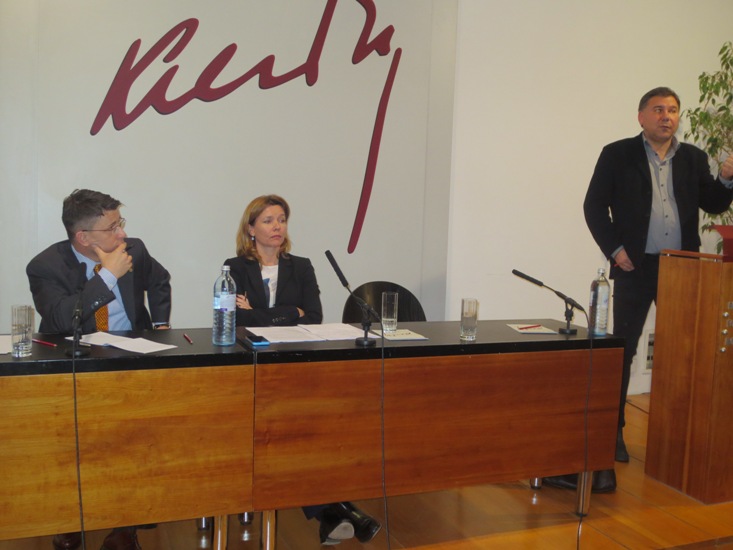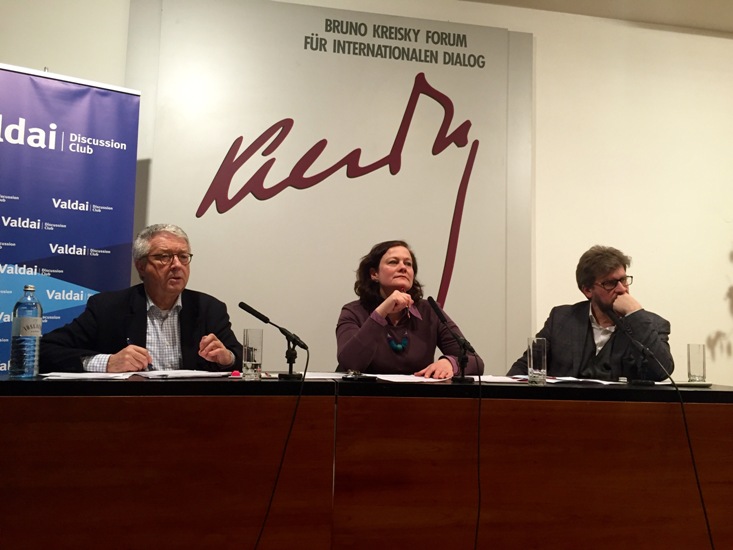Russia and the West
LECTURE SERIES: RUSSIA
Between Realpolitik and Propaganda: Assessing Russia’s Global Reach
“REVERSE ENGINEERING”
Russia and the West
Ivan Krastev, lecturer
Political scientist, Chairman of the Centre for Liberal Strategies in Sofia and Permanent Fellow at the Institute for Human Sciences in Vienna
Respondents:
Vladimir VORONKOV (tbc)
Permanent Representative to United Nations (Vienna),
UNIDO and CTBTO, Resident Representative to IAEA
Gerhard Mangott
Department of Political Science
University of Innsbruck -International Security Research Group (ISRG)
Moderator:
Tessa Szyszkowitz, foreign policy desk profil
In the last years Russian foreign policy has become increasingly motivated by aggressive isolationism. The relations between Moscow and the West are at their lowest point since the 1980s. Could we expect a change? What are the sources of Russia’s new foreign policy? Are Russia’s moves dominated mainly by legitimate geopolitical concerns or are the Kremlin’s moves primarily driven by the domestic political concerns and the fears for the survival of Putin’s political regime? Is Russia’s military involvement in Syria an opportunity for a more cooperative relationship between Russia and the EU or is the recent confrontation between Russia and Turkey a sign for troubles to come?
In Cooperation with IWM/Institue for Human Sciences

